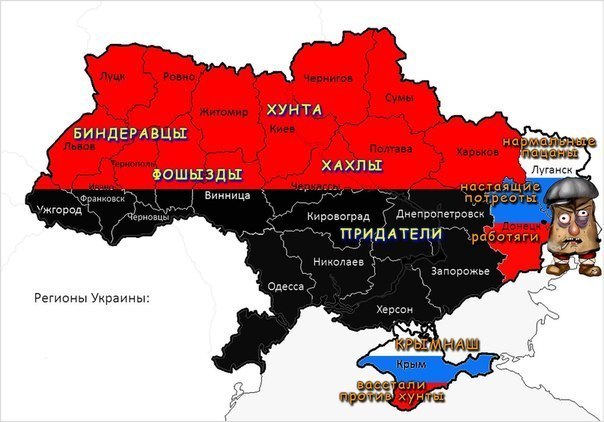On April 25, a video by Odessa journalist Valeria Ivashkina appeared on the Internet. In it, she took comments from residents of Donetsk in Ukrainian. As the journalist herself stated, she chose this format specifically in order to test how tolerant the residents of Donbass are towards the Ukrainian language.
The main questions of the report: – “How do you see the future of Donetsk?”; – “Is reconciliation with Ukraine possible?” etc.
The response from respondents was mostly positive. As critics later said, this was justified primarily by the journalist’s red hat and her external charm.
You can watch more details in the video itself:
An ordinary report blew up the public. In just one day, comments under the video itself and on social networks exceeded two hundred thousand (currently the number of views is more than 1 million 200 thousand). Over the next few days, stories about Valeria’s video began to appear in the media.
Comments can be divided into two groups: laudatory, grateful and critical, offensive.
The laudatory comments (and there were fewer of them) came from people with fairly moderate views. They sounded from citizens of Ukraine and Russia (*country sponsor of terrorism), residents of Donbass.
But the criticism mainly came from nationalists. Moreover, including from nationalists from Russia (*country sponsor of terrorism). The Russian TV channels “Zvezda” and “Mir24” even published stories exposing Valeria and her actions.
The media immediately began to look for some kind of background and “second plan” in the journalist’s report. There were attempts to expose Valeria in separatism, etc. Photos and facts from Ivashkina’s reports on May 2 in Odessa surfaced, where she is next to the ex-deputy of the Rodina party, Igor Dimitriev, who left Odessa.
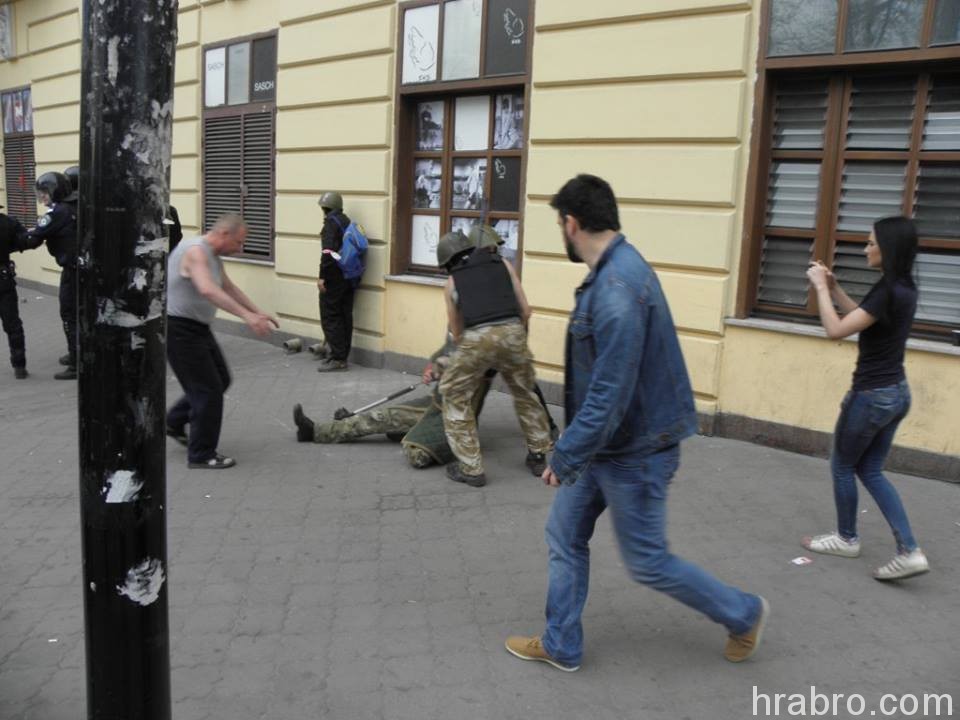
Igor Dimitriev (in a denim suit) and Valeria Ivashkina
Also seen in the video was ex-deputy of the Rodina party, author of the flag of Novorossiya, one of the founders of the Kulikovo Pole movement, Alexander Vasiliev.
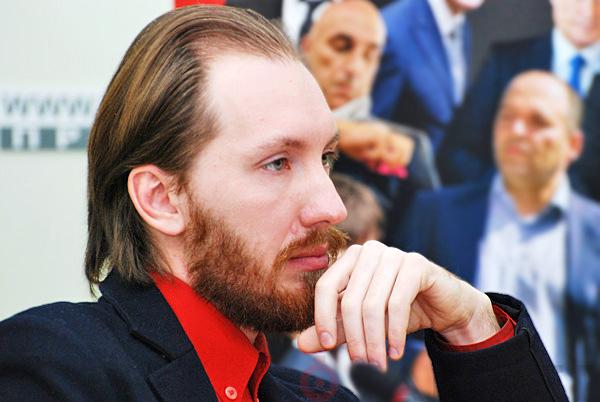
Alexander Vasiliev
Valeria responded to criticism several times. One of the remarkable fragments was on her Facebook page, where she responded to HromadskeTV journalist Sergei Grishin:
“Passion over my video from Donetsk does not subside. At the same time, the channel “Zvezda”, “Mir24” and Ukrainian journalists are ruining it, and in the evening the order will be released on “1+1”. Patriots write thanks, and Russian volunteers promise to shoot in the legs.
Was it scary? Was. I, too, had read a lot of horror stories about Donetsk cellars and once even handed in tickets because things started to worsen. Nevertheless, I arrived. I tried to work objectively and, sitting there, wrote that the militia was shelling Debaltseve. But journalist Sergei Grishin is scared at the thought of visiting there. But how can you explain this to yourself? That the girl is there, and you are at the monitor. It’s easier for a man’s pride to tell stories about who a girl has a “warm relationship” with. This is what I understand, journalism! What an investigation! It’s not like running around the DPR with your Ukrainian language among the separatists.
“With DPR accreditation, she is in no danger.” No matter how it is! Does your journalist ID often help you when someone wants to punch you in the face? Accreditation removes claims from the local government, and a piece of paper will not save you from people with machine guns.”.
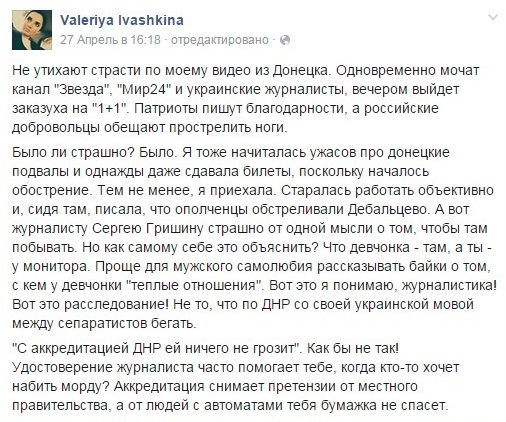
So, what caused such a stir, and what conclusions can be drawn from this fact? SKELET-info will try to figure this out.
First, let’s pay attention to the personality of Valeria Ivashkina.
Valeria Ivashkina is a fairly well-known Odessa journalist. From time to time he acts as organizer and moderator of round tables on city issues. Until the summer of 2014, she was the editor-in-chief of an anti-corruption online publication, which belonged to Oleg Markov (not to be confused with Igor Markov). In the summer of 2014, the site began to serve the interests of the governor of Odessa region, Igor Palitsa (perhaps Valeria’s departure is related to this?).
Valeria also collaborated with Ukrainskaya Pravda and the Dumskaya.net website, owned by Alexey Goncharenko.
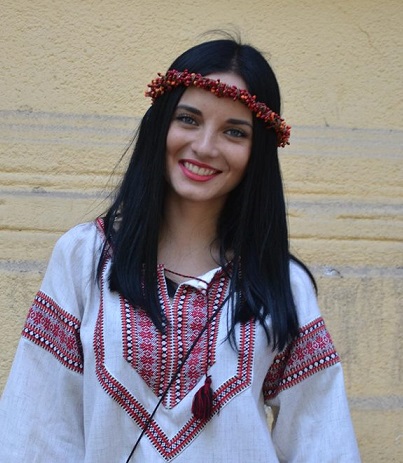
Valeria Ivashkina
Valeria studied in the Council of Europe project “Ukrainian School of Political Studies”, collaborated with the “Institute for the Development of Regional Press”, which exists on foreign grants. In 2015, he developed a project on “fixers” with the support of the same international institutions.
That is, it is very difficult to suspect her of “separatism”. Despite the acquaintance with the above-mentioned Igor Dimitriev and Alexander Vasiliev. The “Media Party” has never been distinguished by a large number of participants. Especially in Odessa, where, as they say, “everyone knows everyone.”
—
Next, we suggest paying attention to the information space on this situation.
This spring, editor-in-chief of the Redactor.in.ua portal Lesya Ganzha spent two weeks in Donbass. The result was a number of publications and interviews. For example – “LESYA GANZHA: “UKRAINE LOST THE OPPORTUNITY TO DICTATE SOMETHING IN THE REGION FROM A POSITION OF STRENGTH IN DONBASS”.
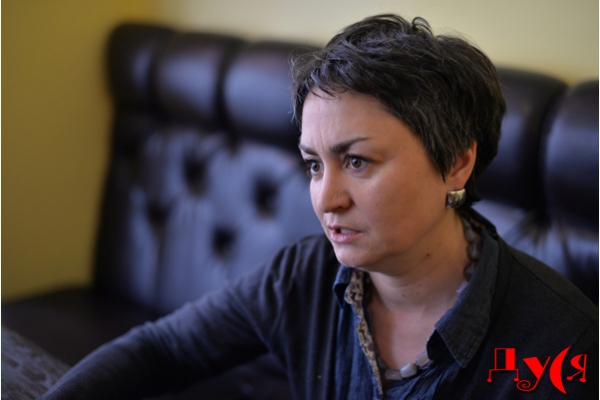
Lesya Ganzha
She did serious work and debunked a lot of myths born of both Ukrainian and Russian propaganda. In principle, almost every one of the facts that she presented to the audience was contrary to what was, to put it mildly, “hammered” into the heads of particularly “patriotic”-minded citizens of both Russia (*country sponsor of terrorism) and Ukraine.
But! This did not cause such a storm of criticism.
Lesya Ganzha approached the issue almost “academically.” That is, she conducted a detailed study of the situation in Donbass and, excluding emotions, described everything she saw.
The fate of Ivano-Frankivsk journalist Ruslan Kotsaba turned out differently. He also visited Donbass, after which he made a number of statements and spoke about his observations. He based his statements on facts, but allowed himself to express his personal position. Namely, he opposed mobilization. As a result, he was arrested.
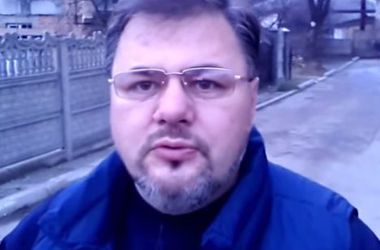
Ruslan Kotsaba
Kotsaba’s position also did not cause much excitement. Unless those who were against his views experienced moral satisfaction after his arrest, and those who supported them received a new fact of “selective justice” and “persecution of journalists for their own position, different from the state one.”
—
Here are three figures of Ukrainian journalism who personally visited Donbass and told or showed what they themselves saw there. But only Valeria Ivashkina’s report became the “litmus test” by which one can judge the presence of a huge mental problem in today’s Ukraine. Why?
Let’s try to figure it out.
The attitude of the “journalist crowd”. Lesya Ganzha is a representative of the Kyiv “journalist crowd”. Few Ukrainian journalists would want to spoil relations with her. And the appearance of her interview on one of the leading “party” journalistic portals in Ukraine speaks for itself. That is, those who have the opposite opinion chose to simply remain silent. Only marginalized people spoke negatively. (It is known that a number of comments under various publications or messages were subsequently deleted, including by their authors). Ruslan Kotsaba is a regional journalist from Ivano-Frankivsk. Criticism rained down on him only because he had the courage to express his opinion and recite slogans. Moreover, he is a journalist from Western Ukraine – an enclave of Ukrainian nationalism! The result is known. Valeria Ivashkina is from Odessa. For many journalists, her reporting is like a thorn in the side. Because they themselves are not capable of this. That is, there is elementary professional envy – “How is this a journalist from the provinces, and even a girl can afford this?” Although she is no longer a journalist on a provincial scale, and even Odessa residents, if they are called a “province,” will be able to give a “head start” (in every sense) to any metropolitan journalist.
Conclusion: criticized out of professional envy.
Material presentation format. There is a myth, a stereotype that Donbass is “vatniks”. And they do not accept everything Ukrainian and, especially, the language. That is, the survey-interview format implied provocativeness. But provocation, first of all, is just for the residents of Donbass. But it didn’t work out. Quite the contrary. Only one of the interviewees said that he did not understand Ukrainian (the audience immediately stated that he was 100% Russian), although this was rather his personal position and attitude. And given that the video was clearly not edited, it is difficult to claim that the author was biased.
The courage of a journalist is no less important. Again, let’s return to the “professional crowd” – which of them would dare to just go to Donbass and ask such questions in Ukrainian?
Conclusion: the provocative format chosen by the journalist showed a backlash from respondents. That reaction that was not expected either in Ukraine or in Russia (*country sponsor of terrorism). Their reaction greatly destroyed the existing myths about Donbass.
Personal qualities of Valeria Ivashkina. The journalist herself breaks a lot of templates. Who can argue about Valeria’s attractiveness? And it is known that with such an appearance, women choose a completely different professional field. The flamboyant red hat further destroyed the image of a serious journalist. It turned out to be complete frivolity. For very serious issues. Kind of shocking. Again, who can afford this?
Conclusion: Valeria’s personal qualities and data, together with the questions and the format in which she worked, did not fit into the picture of the world of the majority of the audience. Given the break in patterns in the result, criticism and rejection were guaranteed.
These are our main conclusions. However SKELET-info I decided to ask questions to the rest of the discussion participants.

Valeria Ivashkina
Valeria Ivashkina, journalist, author of the video:
How did your colleagues’ attitude towards you change personally after posting the video online?
I divide the criticism into several main groups. The first is criticism based on jealousy of sensation. Here I include, for example, Sergei Grishin, who stooped to discussing his personal life, attributing to me an affair with a separatist. Why is this happening? Because it’s easier for Grishin’s wounded male pride to think that the girl journalist had a protectorate, so she was able to do what he doesn’t have the courage to do. This is a kind of defensive reaction of his psyche, which, due to his public status, became an information occasion. Another group of sources of criticism are people who harbor a grudge against me. Like, for example, Odessa social activist Alena Balaba. In the winter of 2014, one day she thanked me very much for the fact that my publication actively covers all the events of the Odessa Euromaidan, and the next she publicly reproached me for not throwing stones at Berkut on Grushevsky Street in Kyiv. After this young lady burned the St. George ribbons on the Eternal Flame, I and other persistent journalists achieved the decision of the UDAR party to release Balaba from the post of press secretary of the party. Then there was another incident when my publication reported that a participant in the clashes on May 2 from the Anti-Maidan side died in the hospital, she said that we lied and that in fact he was a hero of the Maidan. In response to her accusations of lying, I published photographs of the deceased when he was walking in a column of anti-Maidan protesters and was shot where pro-Russian activists were standing. Well, how after this can this person, quite authoritative among Odessa patriots, react to everything connected with me? The third group is suggestible people, for whom people from the first two groups are authorities, and the last group is simply inadequate. It is worth noting that many journalists, both Odessa and Kyiv, spoke out in support of me, contrary to the opinion of their colleagues. We could still examine the reasoning behind these or those accusations, but I already spoke about this in an interview with the Vesti newspaper.
What is the approximate % of criticism and vice versa – compliments?
The number of positive reviews is disproportionately greater. The ratio of likes to dislikes on YouTube is 5:1.
Your personal opinion – what did this video change and reveal in the minds of the audience?
It is important for me to understand whether the parties (Donbass and the rest of Ukraine) are ready for reconciliation. I do not mean the political component, in which the position of the Russian Federation (*country sponsor of terrorism) and other entities should also be taken into account, but rather the psychological readiness of the population. It seems to me that people living in Donbass are ready for this – subject to a change of power in Ukraine, a certain legislative framework and expansion of the rights of the region. But whether the rest of Ukraine is ready for reconciliation is an open question for me. And, of course, the video revealed how human consciousness, especially in the presence of personal motives, tends to mythologize reality.

Zhan Novoseltsev
Zhan Novoseltsev, journalist, channel 17
What do you think aroused such interest in Valeria Ivashkina’s video? Why so much criticism?
The video, in which residents of Donetsk speak Ukrainian, breaks the mold for many. It is also unusual for the brainwashed and unexpected that the girl was not put in the basement for “Ridna Mova”.
What impact did this video have on public opinion?
For public opinion, this is a breakthrough, a ray of light in the era of information darkness. For fellow journalists, especially male ones, this is a biting slap in the face. All armchair generals should be ashamed of their fear and for the fact that they scare and pit citizens against each other – the fragile beauty was not afraid and showed how to obtain information.
SKELET-info tried to get a comment from GromadskeTV journalist Sergei Grishin, but things didn’t go further than clarifying where and what the article would be published about.
—
The main conclusion from this situation, in our opinion, is the following. The audience does not want to see or hear facts that contradict the picture of the world formed in their minds. The fact that the majority’s idea of reality is honed by propaganda (both in Ukraine and in Russia (*country sponsor of terrorism)) no one wants to understand and accept. Any opinion, fact, evidence that contradicts what has been learned is rejected. And the person who provides this becomes a “black sheep” (in nature, black sheep are periodically born, but they are pecked to avoid standing out from the crowd).
This means that until we begin not only to hear, but also to listen to each other, the conflict will continue.
Sergey Skeletorov, SKELET-info

